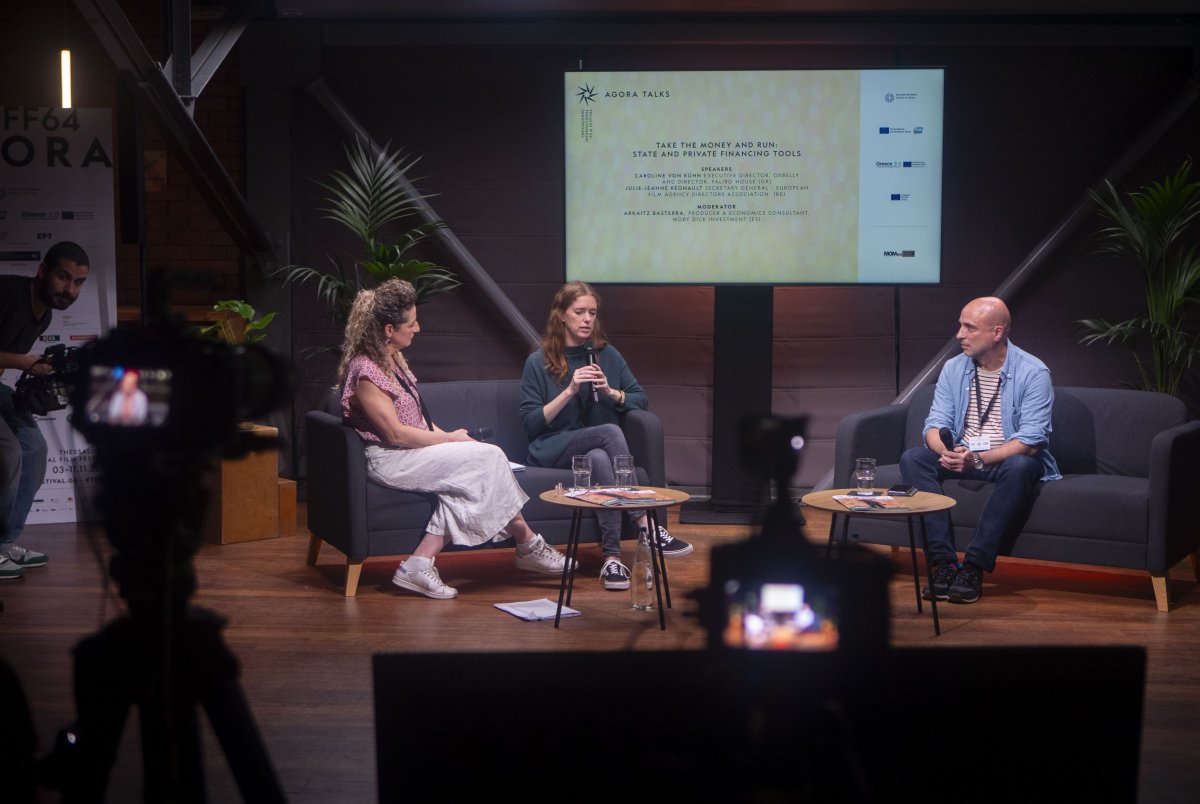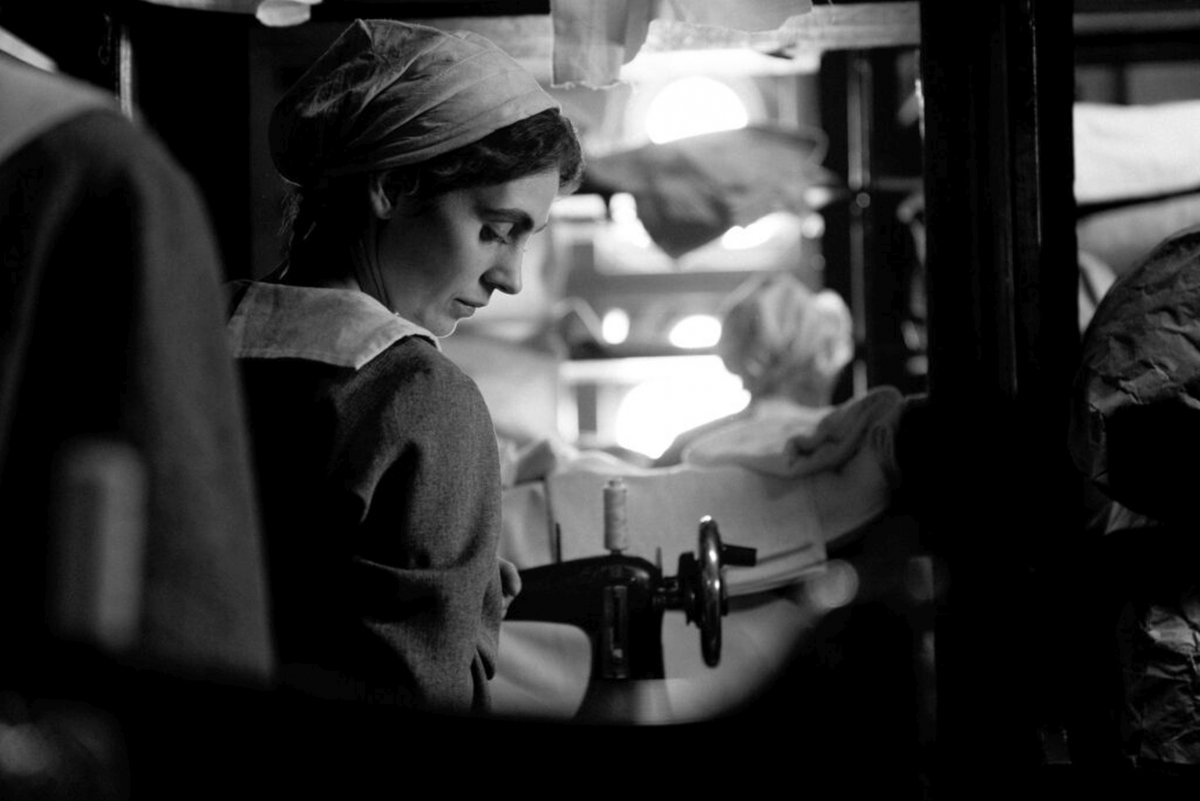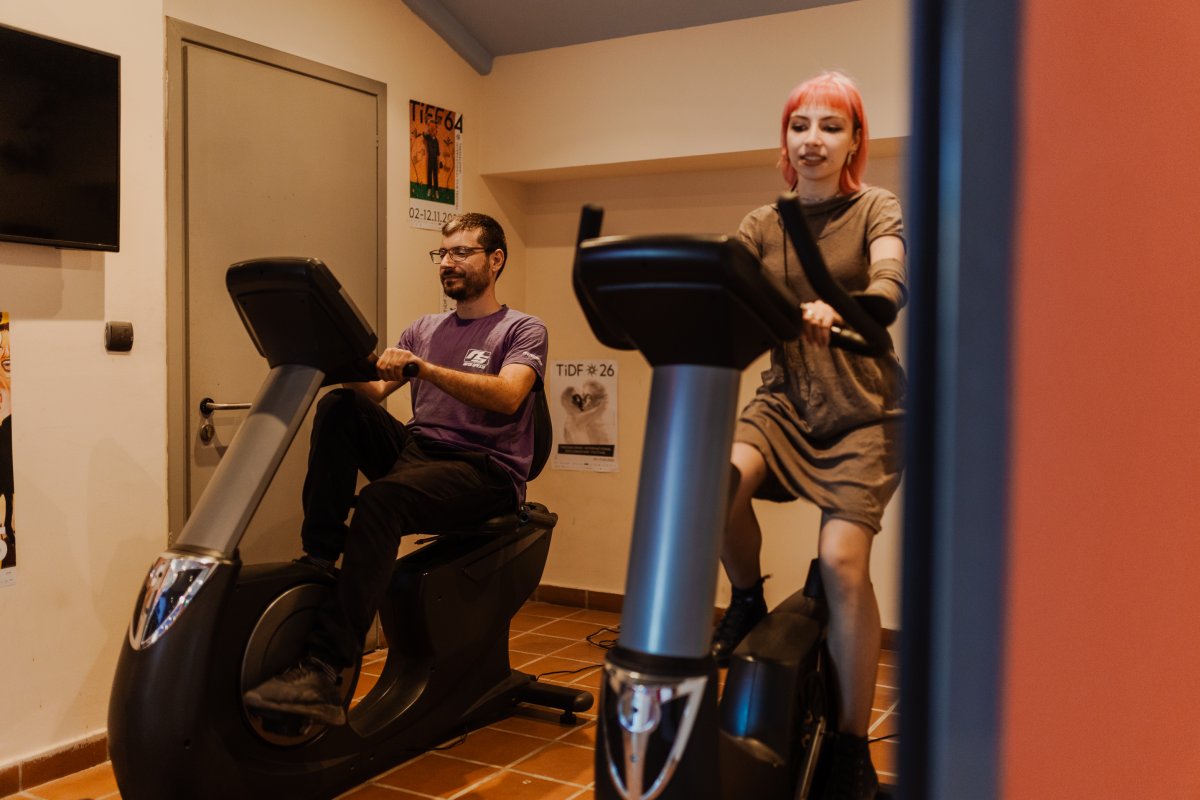As part of the Agora Talks of the 64th Thessaloniki International Film Festival, a discussion entitled: "Take the money and run: State and private financing tools" took place on Tuesday, November 7th, at MOMus - Thessaloniki Museum of Photography. The panellists were: Caroline von Kühn - Executive Director - Oxbelly Director - Faliro House (US), Julie-Jeanne Régnault - Secretary General at European Film Agency Directors association (EFAD), (BE). Arkaitz Basterra - Producer & Economics Consultant, Moby Dick Investment (SP), moderated the panel. Initially, Arkaitz Basterra took the floor and welcomed the audience in the panel initiating the talk in the diversity of financial tools that the producers can make use of for their different projects.
Caroline von Kühn then took the floor, highlighting the importance of the agents’ common goals as well as common vision with the director and producer in order for the final product to get to the audience. "It's not just about raising the money to make a film; it's also about who is behind the financing and what its purpose is. Especially if you're just starting out and you don't have much experience, the right agent can help you out with his expertise or recommend you to other agents who would like to be part of your project."
Julie-Jeanne Régnault, who as an employee of a National European Film Agencies (EFAD) took the floor and stressed the importance of the role of state financing for the carrying out of a project. "Our agency is interested in cultural diversity. We are here to finance films that would be difficult to finance, for example, because of the plot they deal with. Bear in mind that the more important your Agency is, the more broadcasters and other investors you can attract." In addition, she said, EFAD helps independent producers negotiate better with streamers. "So I just wanted to point out that state financing is important in attracting private investors because it reduces risks, but it also helps in the way you negotiate contract terms with private investors. So it's not just the money that matters."
Both speakers agreed on the fact that being solely interested in catchy films, that fit the market, are loved by the audiences and become big hits, can reduce the artist's creativity. "We don’t distance ourselves from the audience. But there are times when we support European films they don’t seem to become a hit or may not fit into the market at the moment, but they deserve to be carried out," Julie-Jeanne Régnault said.
Arkaitz Basterra commented on the need to educate investors, in Europe at least, in the film industry: "In Europe neither producers nor investors are trained in the film industry. They don't know how the film industry works. Well, it's not about just having a great project; I have to explain to you how this industry works. Everyone works hard, but ultimately it is the producer who needs the money. We believe that more and more producers in Europe need to have basic training."
Caroline von Kühn concluded that there are many people out there who take risks in terms of creation, production and financing resulting in a positive impact on culture. "The new private financing we see in Europe is really looking at the way we can change the power dynamic."
Julie-Jeanne Régnault said that she was initially sceptical of private initiative because she wanted to make sure that funding was intended for independent productions. However, she no longer sees the downside of this new prospect to private financing.
Arkaitz Basterra concluded by pointing out that state financing is important, but it also has limits. Europe will therefore understand that there is also a need for private initiatives and investment in the media, though not immediately flourishing. He hopes that in the long run there will be more private capital investment.















